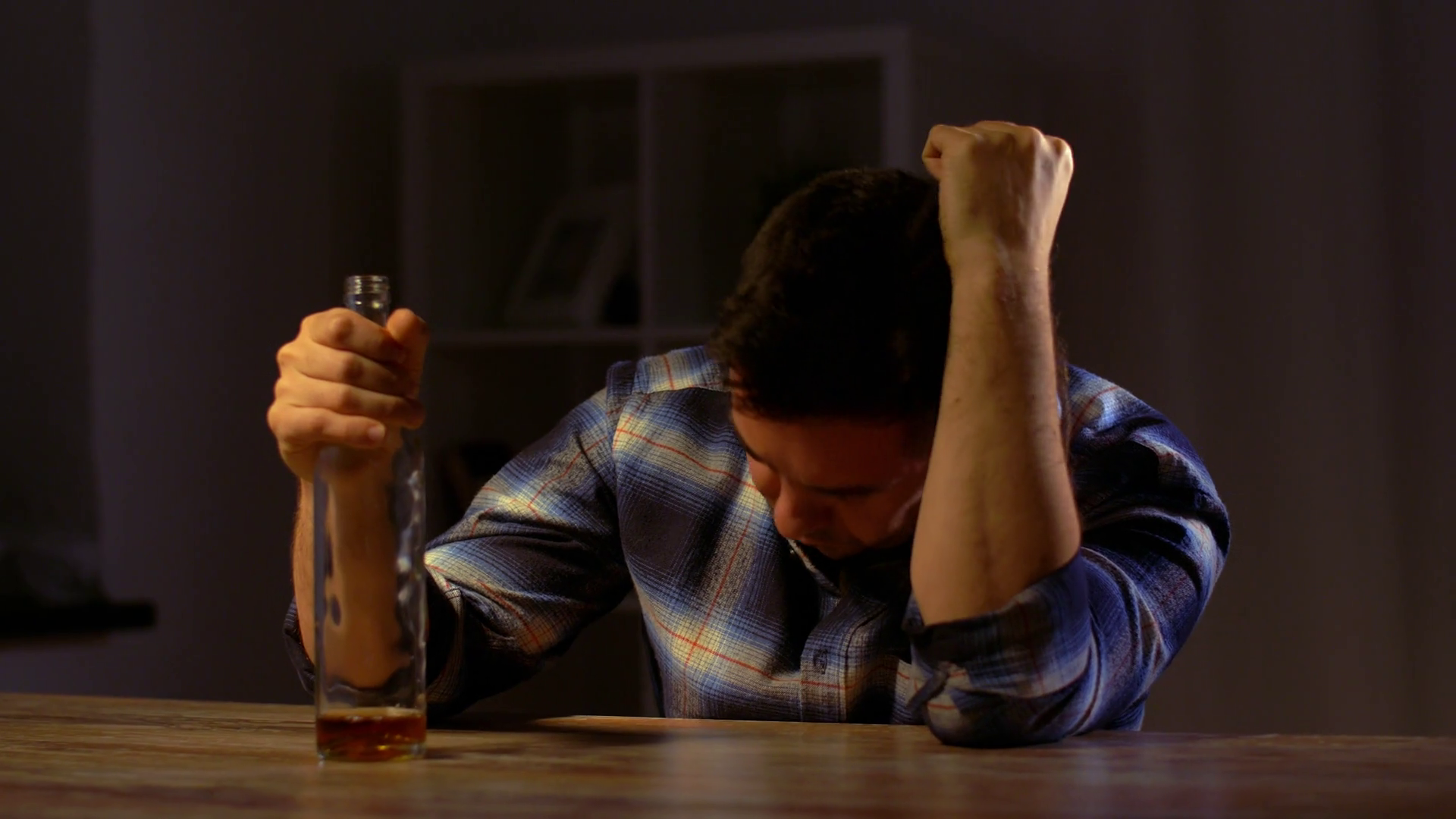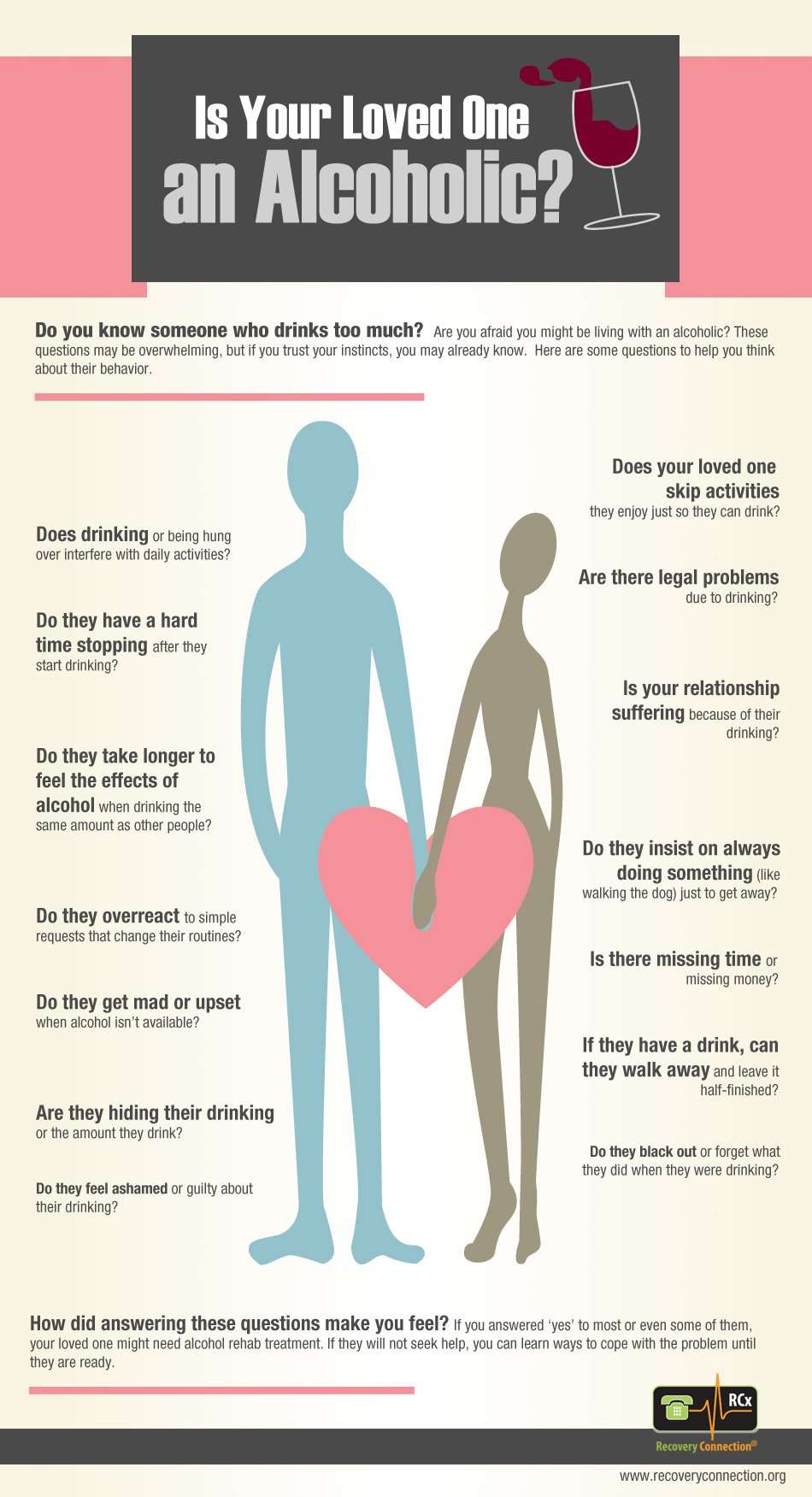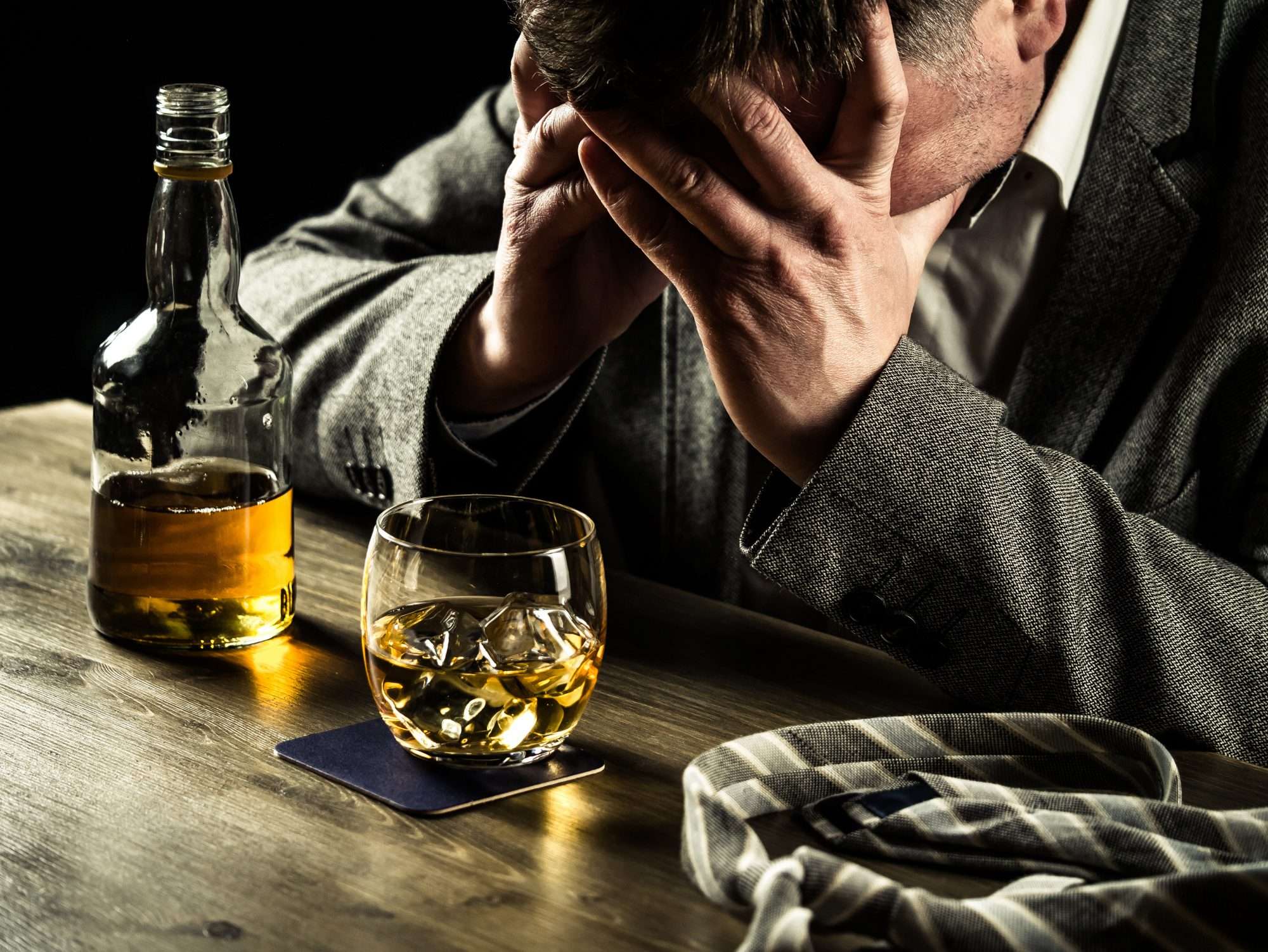Taking The First Step
Addressing how to get an alcoholic to rehab and coming up with an actionable plan is the first step to seeking help. It can be intimidating to attempt to map out a loved ones treatment plan. Fortunately, this responsibility lies with the rehab facility, not the individuals friends and family. The individuals support system also doesnt have the responsibility of getting their loved one in treatment only they can make that decision. The role they can play in their loved ones treatment is helping them recognize the negative impact of alcohol use on their finances, relationships, and responsibilities.
Interventions can be a powerful tool that may help save a loved ones life. The goal of these sessions is to confront the individual about their alcohol addiction. Interventions allow family and friends to not only describe the negative impact of alcohol addiction using real-life examples but also the individuals path to recovery.
A successful intervention has several components. These typically include:
- A plan for the where, when, why, and how
- Help from a professional interventionist
- A group of people who are dedicated to their loved ones health and quality of life
- A list of examples of how the individuals addiction affects friends and family
- An ultimatum
- An outline of treatment options
- A show of support for the individuals success
Be Ready With Concrete Examples Of Why You Think There May Be A Problem
Before seriously confronting someone about their drug or alcohol use, spend some time thinking about the reasons you have for being concerned. Be ready to offer these up as examples when having a conversation with your loved ones. If you say you are concerned but have no solid reasoning, your loved one isnt likely to take you seriously.
How To Talk To Someone About Their Drinking
Its not easy to talk to someone about their drinking. You may be worried that if you bring up your concerns the person will get angry, defensive, lash out, or simply deny that they have a problem. In fact, these are all common reactions. But thats not a reason to avoid saying anything. Your loved ones drinking isnt likely to get better on its own its more likely to get worse until you speak up.
While its important to be open and honest about your concerns, you need to remember that you cannot force someone to stop abusing alcohol. As much as you may want to, and as hard as it is to watch, you cannot make someone stop drinking. The choice is up to them. What you can do, though, is offer them steps they can take to address their problemwhether thats calling a helpline, talking to a doctor or counsellor, entering treatment, or going to a group meeting.
You May Like: Which Drug Is The Most Addictive
Dont: Violate Their Privacy
In taking care of yourself and attending therapy, you may be tempted to vent about your loved one with an addiction. While you should be as honest about your feelings as possible when getting therapy, its important to respect their privacy. This is especially relevant when discussing someone with addiction with friends or family.
Make sure the person is okay being talked about and having their struggles discussed. If you attend counseling with your loved one, make sure you dont reveal what was said in session to others. If your loved one attends therapy or counseling on their own and dont want to discuss what they talked about in session, respect that and dont push them for details.
How Do You Tell Someone They Have A Drinking Problem

This may vary from person-to-person and you may need a substance abuse counselor or the advice of someone who does interventions to guide your approach. Some signs that an individual may have a problem include: negative social, physical, and emotional changes as the disease of alcohol use disorder progresses.
You May Like: How To Quit Addiction Cold Turkey
Types Of Professionals Involved In Care
|
Many health professionals can play a role in treatment. Below is a list of providers and the type of care they may offer. |
||
| Provider Type | Treatment Type | |
|---|---|---|
|
Primary Care Provider |
M.D., D.O. , additionally you may see a Nurse Practitioner or Physicians Assistant |
Medications, Brief Behavioral Treatment, Referral to Specialist |
|
Psychiatrist |
||
|
M.S.W. , L.C.S.W. |
Behavioral Treatment |
|
|
Variesmost States require some form of certification |
Behavioral Treatment |
|
| Individuals are advised to talk to their doctors about the best form of primary treatment. |
How Can You Help A Loved One Get The Help They Need
Mention the word treatment in relation to substance use and many people think of long-term residential facilities or detox. In fact, treatment includes both of these options and a variety of others.
Treatment addresses the individuals physical, psychological, emotional, and social conditions. Sustained reduction in alcohol or other drug use and sustained increases in personal health and social function are the primary goals.
The type of treatment is based on the severity of the problem. For risky people with an active addiction, treatment can be as simple as a screening and a brief intervention. For people exhibiting signs of dependence or addiction, a screening will probably lead to a referral for more intense level of care.
All treatment starts with a screening, which is a series of questions about the amount and frequency of alcohol or other drug use and the consequences it may be causing. Screening can be done by many types of professionals, including a physician in a hospital or an office, a nurse, a clinical social worker, or a licensed substance abuse counselor.
To help someone you know who you think may have a substance use problem, you first need to get them screened. Your best bet is to talk to your own physician or employee assistance professional about referring you to someone who can help, such as a licensed substance abuse counselor or family therapist.
To find a treatment program, visit SAMHSAs Behavioral Health Treatment Services Locator.
Don’t Miss: What Drugs Are Psychologically Addictive
What Is Alcohol Dependence
Alcohol dependence, sometimes known as alcoholism, is the most serious form of drinking problem and describes a strong, often uncontrollable, desire to drink.
Drinking plays an important part in the day to day life of alcohol dependent people, which could lead to building up a physical tolerance or experiencing withdrawal symptoms if they stop.
There are varying degrees of alcohol dependence and they dont always involve excessive levels of drinking. If you find that you need to share a bottle of wine with your partner most nights of the week, or always go for a few pints after work, just to unwind, youre likely to be drinking at a level that could affect your long-term health.
You could also be becoming dependent on alcohol. If you find it very difficult to enjoy yourself or relax without having a drink, you could have become psychologically dependent on alcohol. Physical dependence can follow too, that is your body shows withdrawal symptoms, such as sweating, shaking and nausea, when your blood alcohol level falls.
Our alcohol self-assessment can help you identify if the amount you drink could be putting your health at serious risk.
Evaluating The Costs And Benefits Of Drinking
Make a table like the one below, weighing the costs and benefits of drinking to the costs and benefits of quitting.
| Is drinking worth the cost? |
| Benefits of drinking |
|
Need to talk to someone?
Get affordable online counseling from BetterHelp or visit HelpGuides directory for free helplines and crisis resources. HelpGuide is reader supported. We may receive a commission if you sign up for BetterHelp through the provided link. Learn more.
Don’t Miss: What Addiction Does To The Brain
Detox Vs Rehab Which Is Best
There are those who wonder whether detox or rehab is best for an alcoholic loved one or friend, but the reality is that both are usually required. A comprehensive recovery programme will include detox, rehabilitation, and aftercare statistics show that those who complete a detox without following on with a rehab programme are more likely to suffer a relapse at a later date.
Detox is designed to treat the physical addiction whereas rehab is used to help the addicted person overcome the psychological addiction and the emotional issues associated with it. Successful treatment for addiction entails a number of steps. It starts with detox and follows on with a rehabilitation that may include some or all the below:
Recovery should also include ongoing maintenance in the form of aftercare and follow-ups.
Learn About Alcohol Dependence
One of the ways to help someone with alcohol use is to learn about alcohol use and addiction. This can help you understand their behavior and to stop taking their actions personally.
Alcohol addiction is a treatable, chronic disease, complete with symptoms, triggers, and genetic predispositions. A person struggling with alcohol addiction is sick and cannot always make the best decisions for themselves.
There are Al-Anon meetings, as well as online support groups, for friends and families of those struggling with alcohol addiction. These groups educate members about how alcoholism affects the entire family and the toll that it takes on everyone.
Al-Anon offers information on how to separate yourself from the problems of the person struggling with alcoholism.Many people report that the stories they heard sounded exactly like what they were experiencing in their own lives and that they didnt feel so alone afterward.
Al-Anon also teaches about unhealthy and enabling roles that you may be playing in the life of someone addicted to alcohol, and what to do if that is happening.
Another quality source for information regarding alcohol use and addiction is the National Institute on Alcohol Use And Alcoholism.
Recommended Reading: How To Know If You Are Addicted To Alcohol
Be Gentle But Assertive
When dealing with someone who potentially has AUD, it is important not to blame them. It is also essential to remember that this is something they cannot control.
During the conversation, people may want to explain the effects that the personâs drinking behavior is having on themselves and others.
It is important to approach this conversation calmly. If the conversation becomes heated, it is best to end it and try again on another occasion.
It takes courage for someone to get help for AUD. This means it may take several conversations before they accept that they have a problem and need treatment.
If during the conversation, the person becomes violent or they make threats to harm themselves or others, the person with them is best calling 911.
Useful Contacts For Alcohol Problems

- Drinkline is the national alcohol helpline. If you’re worried about your own or someone else’s drinking, you can call this free helpline in complete confidence. Call 0300 123 1110 .
- Alcoholics Anonymous is a free self-help group. Its “12 step” programme involves getting sober with the help of regular support groups.
- Al-Anon Family Groups offers support and understanding to the families and friends of problem drinkers, whether they’re still drinking or not. Alateen is part of Al-Anon and can be attended by 12- to 17-year-olds who are affected by another person’s drinking, usually a parent.
- We Are With You is a UK-wide treatment agency that helps individuals, families and communities manage the effects of drug and alcohol misuse. If you are over 50 and worried about your drinking, call 0808 8010 750
- Adfam is a national charity working with families affected by drugs and alcohol. Adfam operates an online message board and a database of local support groups.
- The National Association for Children of Alcoholics provides a free, confidential telephone and email helpline for children of alcohol-dependent parents and others concerned about their welfare. Call 0800 358 3456 for the Nacoa helpline.
- SMART Recovery groups help people decide whether they have a problem, build up their motivation to change, and offer a set of proven tools and techniques to support recovery.
Caring for an alcoholic? Find out where you can get support.
You May Like: Can You Get Addicted To Imodium
Dont Focus On Guilt Or Shame
Someone struggling with addiction is usually already feeling deep guilt, shame and anger about their using. In addition, many feel judged by their family and friends, and will act defensively in response to any criticism that is levelled at them. Rather than helping, if the judgement or moralising does appear, they may turn to using to combat the feelings of stress that this gives them.
It is understandable however, as the person suffering may have already deeply hurt you, broken your trust or angered you. Where there is love left though, it is important to understand that feelings of shame, anger, and judgement can negatively affect your relationship with the person addicted and actively harm their chances of recovery. Research shows that shame is one of the least effective incentives to change, because it is isolating, painful and can make the addicted person believe they are unworthy of love or treatment.
Specialised Drug And Alcohol Services
There are some specialised drug and alcohol services that provide help to certain groups of people. If your situation requires specialist assistance with older or younger people, language or translation services, different cultural backgrounds or homelessness, some of the following services might be useful for you.
Read Also: How To Stop Marijuana Addiction
Get Help For Yourself
Remember to take care of yourself, too. The emotional impact of helping a loved one stay sober can take a toll. Seek help from a therapist or a counselor if you feel stressed or depressed. You can also participate in a program thats designed for the friends and family members of alcoholics, such as Al-Anon.
Express Your Love And Concern
Being overly aggressive or pragmatic may force some people with addiction to become defensive or isolate themselves from scrutiny. Be careful with your words and always emphasize that they come from a place of love and concern. This will be more effective than being angry, attacking them, or trying to guilt or coerce them to stop. This can be especially true when dealing with teens or young people. Instead, continue to let them know you are only talking to them because you love and care about them and are concerned for their safety.
Read Also: How To Deal With Addicted Family Member
Family Help For Different Cultures
You or another family member may have special cultural or language needs. When using a public health service in Victoria you have a right to be communicated with in a way that you can understand and that respects your cultural needs. A professional interpreter will be provided at no cost for those who need it.
If you would like to access alcohol or drug counselling over the phone but are not confident with English, both DirectLine and Youth Drug and Alcohol Advice telephone helpline can provide interpreters at no cost to you. Ask the person who answers your call to organise this. Make sure you are clear about the language or dialect you speak and mention if you would prefer an interpreter of a particular gender.
Other Resources For Your Loved One In Recovery
Numerous resources are available for people struggling with alcohol abuse issues, some of which include:
- The Substance Abuse and Mental Health Service Administrations nationwide treatment directory.
- SMART Recovery.
There may also be recovery resources available in your own community. You may want to inquire with your doctor, any spiritual or religious institutions you belong to, your local veterans administrations, your local gay and lesbian community center, or county or regional healthcare authority.
Also Check: What Drugs Are The Most Addictive
Educate Yourself On Alcoholism
Learn to recognize the signs and effects of the addiction. Addiction Rehab Toronto offers many online resources to help you educate yourself. Learn as much as you can about the causes of alcohol addiction and how it can affect a persons life and their family. This will help you gain insight into what might have led your loved one to resort to alcohol and what could happen to your family if it wont be addressed.
Ongoing Support After Treatment

While you are not responsible for another persons recovery, there are things that you can do to support their efforts to get better. For example, with the permission of your loved one, you can accompany them to support groups or refrain from keeping alcohol in your house so they wont be tempted to start drinking again. You can also suggest engaging in enjoyable hobbies or activities together that do not involve drinking.12
Al-Anon meetings are great resources for you and other loved ones to learn how to best support your loved one with an alcohol abuse issue. Al-Anon meetings can also coach you on how to set healthy boundaries. Therapy, either as a family, by yourself, or both, can also help you navigate recovery with your loved one.
Just remember that if your loved one relapses, try not to panic. Instead, do your best to help them return to treatment quickly so theyll get back on track to long-term recovery. You may choose to help them find long-term treatment or utilize another professional resource. And, most of all, be sure to take the necessary steps to care for yourself and your mental health.
Helping someone with an alcohol abuse problem may be a challenge, but it is possible. More and more resources are becoming available to those struggling with substance abuse problems. The future of addiction recovery is becoming increasingly brighter.
Don’t Miss: How To Overcome Gaming Addiction
